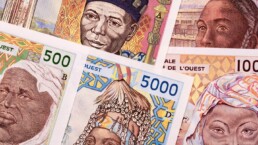With 70% of Africa’s population under the age of 30, we as a continent are presented with a great opportunity and, possibly, a great challenge. Young Africans today are taking actions that not only have an immediate impact, but will also determine the future of the continent for decades to come.
Never has there been such weighty responsibility on the shoulders of young people. Never has there been the influence in the hands of young people like the influence they carry now. But for Africa to reap the dividends she has longed for, it is up to our generation to make sure that influence is channelled correctly and directed towards relevant issues that affect not only ourselves, but generations after us. This can only be achieved if we come together as young people and begin to address the challenges before us as a continent.
The role of African youth is drastically changing, but so are some of the challenges we face, such as employability and entrepreneurship opportunities. The strength of any society is within the strength and resolve of its youth – what investment are young people making in our continent today?
In the past 6 months, I’ve listened to the argument stating that we have spent more time focused on what’s happening in other continents, like the US presidency, and less on local issues. I have had the privilege of being invited to speak at different platforms across Africa and have met and engaged with fellow young people who know less about my country Zimbabwe but more of what’s happening in the US and in Europe, and these discussions brought us to a conclusion that as a continent we have not done a good job in telling our own stories, both good and bad, affecting our people. There are important matters such as the thousands of lives of fellow Africans lost at sea when trying to leave the continent for greener pastures, youth unemployment, gross mismanagement of government institutions and resources, xenophobia among our own people and the general restlessness and frustrations of young African people.
There’s no problem with us engaging in discourse at a global level, but I feel it is important for us to exert more of our time and energy on issues that affect our continent and our people. I believe if we, as youth, don’t take ownership and responsibility for our problems and challenges, we run the risk of allowing other nations, organizations and institutions to do so on their terms. My question to fellow young Africans is are we creating a future in which generations after us can be confident?
A lot has been said about Africa and its rise in the past few years. For this to be true, I believe it requires its people to also rise and drive the agenda, not wait for instruction or direction from other nations. If this doesn’t happen, Africa may still rise, but only for those with an agenda for the continent. This then begs me the question of fellow young Africans: what is our agenda, and what are we doing to shape that agenda?
With regard to employability, according to the African Development Bank report, by 2050 Africa will be home to 38 of the 40 youngest countries in the world, with median populations under 25 years of age. This will result in an estimated 10-12 million new people joining the labour force each year. These statistics clearly indicate that a considerable amount of investment must go into human development to unlock a demographic dividend. What innovative policies and programmes do we, as young people, want to make sure that this happens and that this growth will not result in a demographic time bomb for Africa?
With the Fourth Industrial Revolution upon us and the rate at which technology is advancing it is critical that we have a sufficiently educated and skilled workforce to be able to drive Africa in this direction. There is currently a mismatch between industry demands and the education curriculum. Education institutions need to update their curricula to align with the direction in which the world and Africa are going. If we ignore this, our young people will have irrelevant qualifications that the continent will be unable to benefit from.
It is worrying to note the rate at which young educated Africans are leaving to seek more opportunities abroad. The grass is not always greener on the other side, however, as leaders of other nations are also facing domestic challenges and therefore not prioritizing immigrants. If our educational institutions can include entrepreneurship as a mandatory subject at all levels of education, more young people will be better equipped to create jobs and address the issue of high unemployment.
I am a strong advocate for local solutions to local challenges, but for this to happen, we need to encourage and cultivate innovation among our youth. It is encouraging to note that there are pockets of this already taking place across the continent, where we can see uptake and use of locally-designed technology. More of this needs to happen across the board, covering the different sectors of our economies, as Africa still lags behind the rest of the world when it comes to introducing disruptive technology. Human development is about creating opportunities and building a person’s ability to innovate and be entrepreneurial. Significant investment needs to go towards this.
With the growth of the continent, it only makes sense for us to industrialize in order to be less reliant on importing products for consumption from outside the continent. According to the African Economic Outlook 2017 report, Africa’s growing population is expected to generate a rise in consumer spending from $680 billion in 2008 to $2.2 trillion in 2030. This increased spending has the potential to lead to greater prosperity.
The growth in Africa’s population presents a huge opportunity for entrepreneurial innovations and ideas to be implemented. It does, however, require strong political will to enable the right environment to be created to encourage these ideas and for entrepreneurs to be supported in their different stages of growth, from start-up, early stage and growth stage right through to becoming large corporations.
As you may notice, this article asks more questions than it provides solutions. The best way for us to answer these is if we begin to engage in conversations and dialogue amongst ourselves as young Africans and see what solutions we can come up with for a better Africa. We spend time complaining about poor leadership in our countries, but my final question is: are we ourselves prepared to succeed the generation that precedes us?
Let us intentionally create a culture that encourages the building and shaping of the Africa that we want. The change we want begins with us coming together and developing our own culture and value system for thinking, planning, implementation, accountability, integrity and collaboration. It is up to us as young Africans to shape the narrative of our continent. Let us begin to do so, in every sphere of society.
This article was originally published by the World Economic Forum
The views expressed in this article are those of the author alone and not the Future Africa Forum.
The views expressed in this article are those of the author and do not necessarily reflect the views of Future Africa Forum. Future Africa Forum is a pan-African policy think-tank and policy advisory consultancy headquartered in Nairobi, Kenya.



